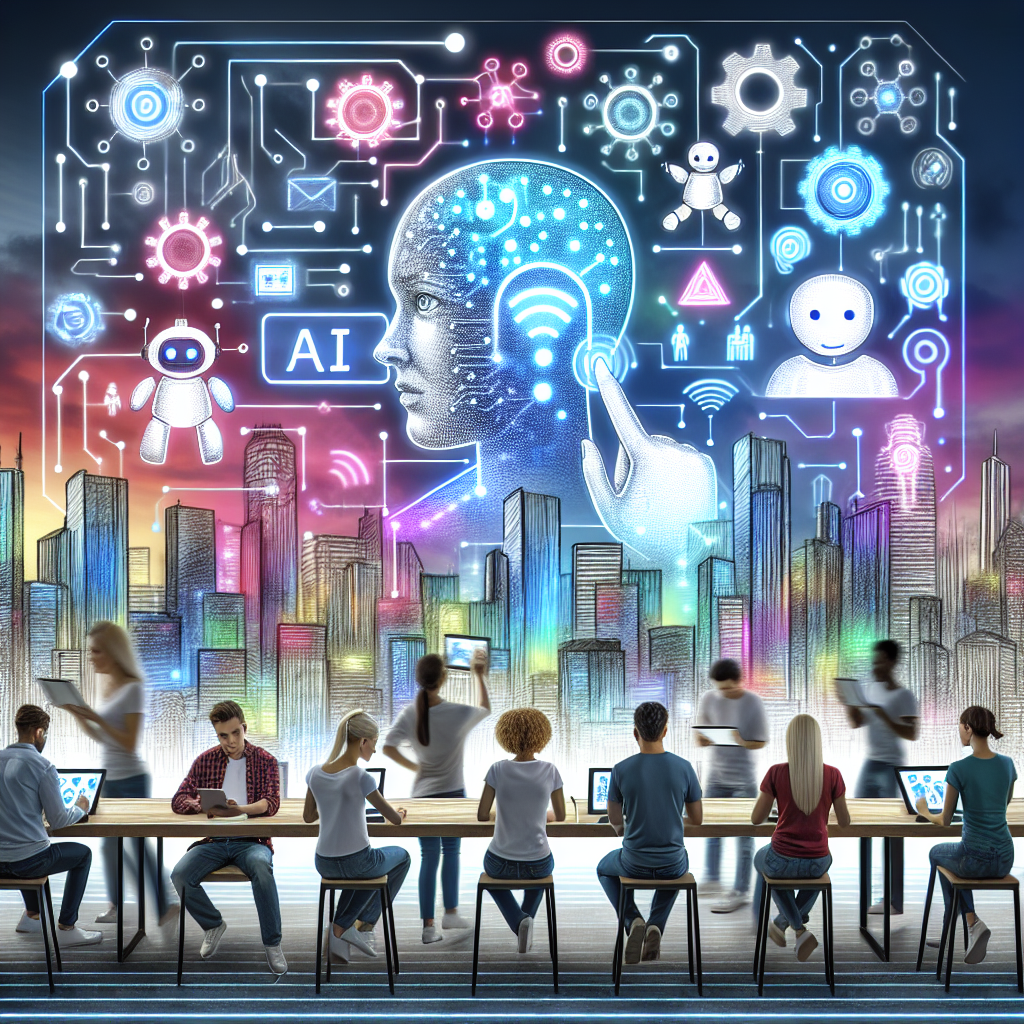In today’s digital age, the use of artificial intelligence (AI) has become increasingly prevalent in various aspects of society, including government services and citizen engagement. AI has the potential to revolutionize the way governments interact with their citizens, making processes more efficient, personalized, and accessible. In this article, we will explore the benefits of AI in improving citizen engagement and how it can enhance the relationship between governments and the people they serve.
1. Improved Access to Information
One of the key benefits of AI in citizen engagement is the ability to provide citizens with easy access to information. AI-powered chatbots can be used to answer common queries, provide information on government services, and guide citizens through various processes. This can help reduce the burden on government call centers and websites, allowing citizens to quickly find the information they need without having to wait on hold or search through multiple pages.
AI can also be used to personalize the information provided to citizens based on their preferences and past interactions. By analyzing data on citizen behavior and preferences, AI systems can tailor information to individual needs, making it more relevant and useful. This can help improve citizen engagement by ensuring that citizens receive the information they need in a timely and efficient manner.
2. Enhanced Service Delivery
AI can also be used to improve the delivery of government services to citizens. By automating routine tasks and processes, AI can help streamline service delivery, reduce errors, and free up government employees to focus on more complex and high-value tasks. For example, AI can be used to automate the processing of applications for government benefits, permits, and licenses, speeding up the process and reducing the likelihood of errors.
AI can also be used to identify opportunities for service improvement and optimization. By analyzing data on citizen interactions and feedback, AI systems can identify trends, patterns, and areas for improvement, helping governments to better understand citizen needs and preferences. This can lead to more responsive and citizen-centric service delivery, ultimately improving citizen satisfaction and engagement.
3. Increased Citizen Participation
AI can also play a key role in increasing citizen participation in government decision-making processes. By leveraging AI-powered tools such as online surveys, sentiment analysis, and social media monitoring, governments can gather feedback from citizens on a wide range of issues, enabling them to make more informed decisions that reflect citizen preferences.
AI can also be used to facilitate citizen engagement in policy development and implementation. For example, AI-powered platforms can be used to crowdsource ideas, gather input on draft policies, and enable citizens to collaborate with government officials on decision-making processes. This can help increase transparency, accountability, and trust in government, ultimately leading to more effective and responsive governance.
4. Enhanced Data Analysis and Insights
AI can also help governments better analyze and understand citizen data, enabling them to make data-driven decisions that improve citizen engagement. By analyzing data on citizen interactions, preferences, and feedback, AI systems can identify trends, patterns, and insights that can inform policy development, service delivery, and citizen engagement strategies.
AI can also help governments identify and address issues of concern to citizens in a timely manner. By monitoring social media, news sources, and other sources of citizen feedback, AI systems can quickly identify emerging issues, enabling governments to respond proactively and effectively. This can help build trust and confidence in government, ultimately leading to greater citizen engagement and participation.
5. FAQs
Q: How can AI improve citizen engagement in government services?
A: AI can improve citizen engagement in government services by providing easy access to information, enhancing service delivery, increasing citizen participation, and enabling governments to better analyze and understand citizen data.
Q: What are some examples of AI-powered tools used in citizen engagement?
A: Some examples of AI-powered tools used in citizen engagement include chatbots, online surveys, sentiment analysis, social media monitoring, and data analytics platforms.
Q: How can AI help governments respond to citizen feedback and concerns?
A: AI can help governments respond to citizen feedback and concerns by quickly identifying emerging issues, analyzing data on citizen interactions and feedback, and enabling more proactive and effective responses.
Q: What are some challenges to implementing AI in citizen engagement?
A: Some challenges to implementing AI in citizen engagement include concerns about data privacy and security, the need for ongoing training and capacity building, and the potential for bias in AI algorithms.
In conclusion, AI has the potential to revolutionize citizen engagement and improve the relationship between governments and the people they serve. By providing easy access to information, enhancing service delivery, increasing citizen participation, and enabling governments to better analyze and understand citizen data, AI can help governments better meet citizen needs and preferences, ultimately leading to more effective and responsive governance.

